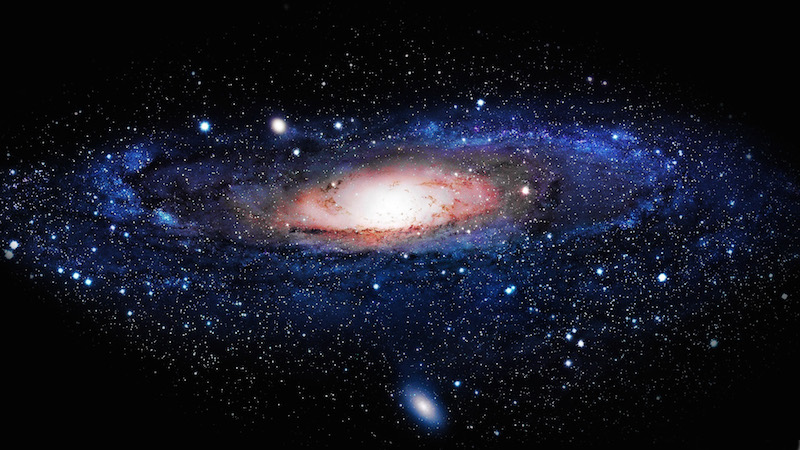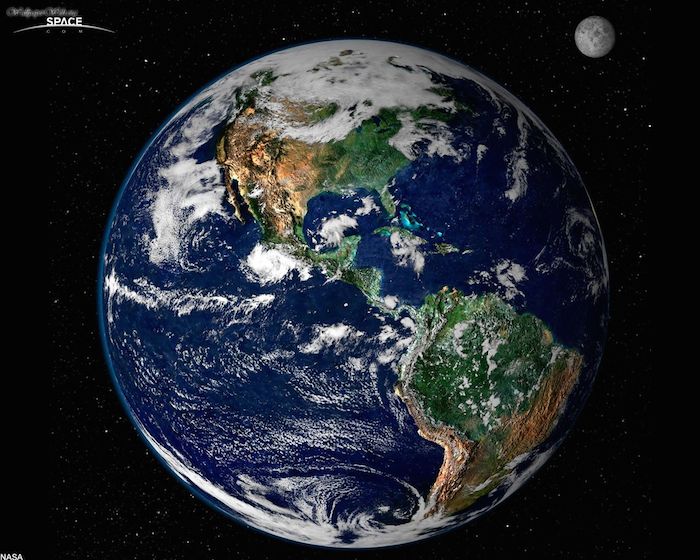
By Bamidele Oni.
The Milky Way Galaxy, a hub of many planetary bodies, each with its own distinctive belt of extraordinary features which largely still elude the human knowledge grasp.
However, while there exists the already known and yet to be identified planetary systems in this galaxy, many of them have been deemed void of life at least within the scope of the present age knowledge of the universe. But, right in the vastness and the emptiness of space, a speck of life does exist, a living planet that supports life in its entirety, the only home of man, Earth.
The planet is such that seem to have a faculty of ingenious succession and adaptive capability such that all possible prevailing conditions synonymous to growth all conformed to the collective evolution of a perfect and functional life system.
In other words, Nature, as we have come to christen the system, has been quite methodological and sequential in the view of provisions of the necessities needed for the existence of a balanced life support system such that for every possible and existing life form, there are already provision to support the continuous propagation of such and thus, posterity is enabled.
The primordial era, the Jurassic era, the continental drifting, and the many modifications of the earth’s climate overtime all made possible the diversified existence of the planet as in the different eco-geographical patterned world, the various biological diversity and eco-physical distribution.
Earth’s default is to support life and provide in abundant for every life from within the span of existence and within the scope of its relative regenerative ability.
The first group of humans on the planet were gatherers and wanderers; this era could be well classified as the beginning of man’s exploitation of earth’s vast resources and with relatively negligible competitions from other existing life forms except for the untamed animals.
The era of gathering passed and man graduated into hunting and could make weapons out of stones and wood. Man grew in space and knowledge, while of course the growth was still within the range the planet’s resources could largely support.
The industrial revolution changed it all and our population rose exponentially and now the current global population figure stands around 7 billion with a future estimated progression at 8.3-10.9 billion by 2050.
While the population increase might seem naturally agreeable, the dwindling supporting resources way betray whatever positivity posterity portrays. In a way an expression of an inverse proportionality could be well assumed for the relationship between population and the available supporting resources which means the larger the population the less available the support resources and with a constant factor of a rising population.
Population increase coupled with human unsustainable lifestyles have largely stressed out the supporting capacity of the planet and thus enabled natural but disastrous occurrences that seemed only natural for the earth’s system to adjust and adapt to the unnatural changes.
As the population is increasing, the rate of consumption is definitely increasing linearly and the setback is in the lack of making sufficient allowance for future availability in the tune of keeping the production and consumption patterns in balance. Humans have heavily impacted the planet such that ecological disruptions have taken the order of the day and the earth seems at the mercy of man.
The future is expected to exhibit more population growth that would possibly have to compete with climate change related stress factors, ecological disasters among many other induced conditions that might not be entirely palatable to life.
This future projection calls for a reverse in our ways of life such that we live within the range the planet’s resource could support and make available for the future generation.
While so many countries are moving towards this sustainable path, a lot are still wallowing in wastefulness and unbalanced consumption rate which has often been attributed to low technology and poor economic standing which portrays a typical consuming society. However, the time is quite a sensitive one such that individual efforts are greatly required now more than ever to account for the total societal change.
The call has been to live sustainably and the options are numerous, an above average optimism is seen in the 3Rs options of Reduce, Recycle and Reduce which ultimately form a rather sound pathway to a sustainable future and a future of zero waste.
Carpooling is another viable option, choosing energy efficient appliances, the choice of alternative energy sources, community based forest practices, improvement in harvesting and storage practices to reduce wastage, and the promotion of purchase of locally grown food items and discouragement of food importation.
Perharps you live in the doubts of being a contributor, take the step of measuring your relative ecological footprint such that you know where you stand and in order for the necessary adjustment in time for the good of all.
It would make a lot of difference if all humans on earth would learn to lighten their Eco-footprint and in turn keep in check to make available for the rest coming after us.
The Earth once prepared for us and that is a lesson we could imbibe in making provisions for the future. The planet has always taken care of us from time immemorial, so to take our turn in caring for this noble planet is not too much to ask for.
Sincerely Yours Earthly.
Oni, the Executive Director of Green Impact International, writes from Abeokuta, Nigeria











